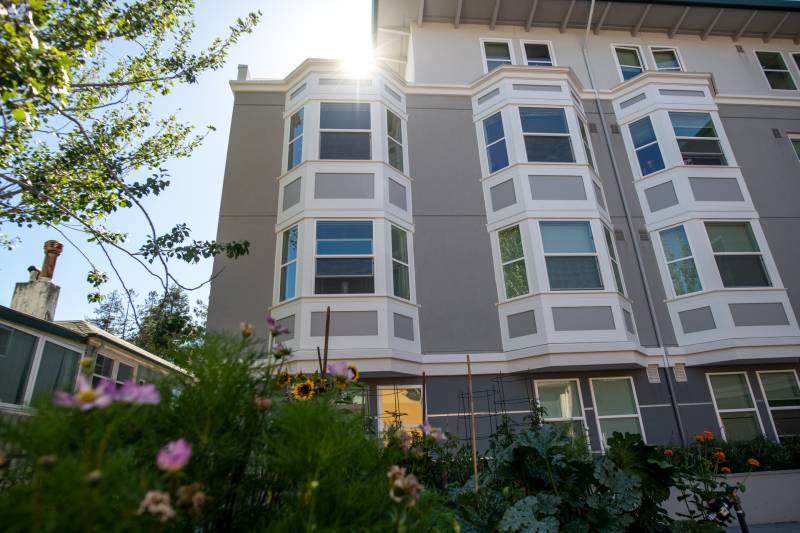Read a transcript of this episode here.
Bay Curious listener Daniel Lawlor was walking around San Francisco a couple years ago, admiring its historic churches and the large properties they sometimes stand on. He had the state’s affordable housing crisis on his mind, too. So, putting two and two together, he started wondering: Could religious organizations build affordable housing?
Daniel sent his question to Bay Curious in January 2021. When we reached out to him late last year, he’d moved to Brooklyn, New York, and switched careers — from working at an after-school literacy program in Oakland to being the minister of the Unitarian Universalist Congregation of the Hudson Valley in New York. His new role changed his perspective on his initial question, and he now also wanted to know what kind of support systems are available to churches interested in building affordable housing.
A UC Berkeley study estimates there are about 38,000 acres of unused land owned by faith groups in California, an area roughly the size of Stockton. But turning that land into affordable housing takes a lot of time and commitment, as reporter Adhiti Bandlamudi found. And if a house of worship is hoping to make money off the property, they face a slate of challenges.
Hit the play button above to hear our Bay Curious episode, or read Adhiti’s web post: California Churches Want to Build Affordable Housing on Their Land, So Why Is It So Hard?

